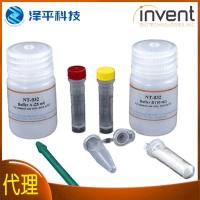Gene Regulation During Cold Stress Acclimation in Plants
互联网
互联网
相关产品推荐

SARS-CoV-2 (2019-nCoV) Spike Gene ORF cDNA clone expression plasmid (Codon Optimized)
¥4690

Invent Minute植物膜蛋白提取试剂盒 Minute Plasma Membrane Protein Isolation Kit for Plants 货号:SM-005-P
¥1500

Recombinant-Arabidopsis-thaliana-Aquaporin-PIP2-7PIP2-7Aquaporin PIP2-7 Alternative name(s): Plasma membrane intrinsic protein 2-7; AtPIP2; 7 Plasma membrane intrinsic protein 3 Salt stress-induced major intrinsic protein
¥11270

CIRBP/CIRBP蛋白Recombinant Human Cold-inducible RNA-binding protein (CIRBP)重组蛋白A18 hnRNP (Glycine-rich RNA-binding protein CIRP) (A18HNRNP) (CIRP)蛋白
¥1344

Human CBLL1 Gene ORF cDNA clone expression plasmid
¥1770
相关问答

